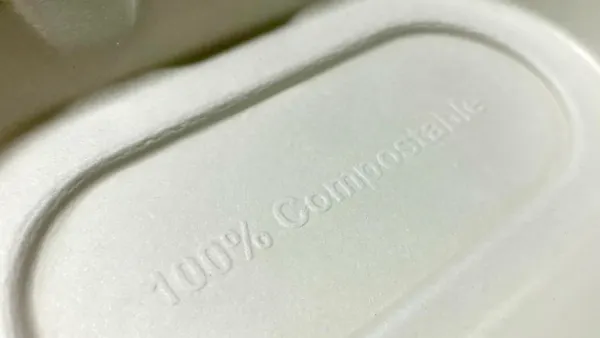Dive Brief:
- According to a new Ellen MacArthur Foundation report launched at the World Economic Forum on Tuesday, new plastics will consume 20% of all oil production within 35 years, with at least 8 million metric tons of it currently flowing into the ocean every year (equal to one trash truckload every minute). The report states that the plastics industry is not addressing the issue quickly enough and if that does not change, the rate we will likely increase to equate two truckloads per minute by 2030, and four per minute by 2050 — resulting in more plastic in the sea than fish, by weight.
- Authors call for a systemic change involving collaboration between all stakeholders across the plastics value chain. And they make these specific recommendations: create an effective after-use economy; drastically reduce leakage of plastics into natural systems; and decouple plastic from fossil feedstocks. they also recommend a "moonshot" approach to create plastics that can be recycled and composted.
- Among other highlights of the report are that 5% of plastics are effectively recycled; 40% are landfilled; and 1/3 enters ecosystems including the oceans where they pose a threat to sea life.
Dive Insight:
Plastics come with serious problems, but they have potential to boost the economy if they are managed properly after production, which will require executing such systemic approaches as the authors discuss. This will entail pulling in efforts from manufacturers and distributors of plastics, packaging producers, haulers, sorters, recyclers, municipalities and policy makers, among other stakeholders.
Dr. Martin R Stuchtey of the McKinsey Center for Business and Environment, who contributed to the report, said, "Plastics are the workhorse material of the modern economy, with unbeaten properties. However they are also the ultimate single-use material. Growing volumes of end-of-use plastics are generating costs and destroying value to the industry. After-use plastics could, with circular economy thinking, be turned into valuable feedstock."
The MacArthur Foundation report follows on the heels of an Ocean Conservancy report that also calls for a comprehensive, cooperative approach. Nicholas Mallos of the Ocean Conservancy appealed specifically for a strategy involving "changing our own behavior as consumers … coastal cleanups and product-specific policy, to transformative ways to manage plastic waste at the global scale."








